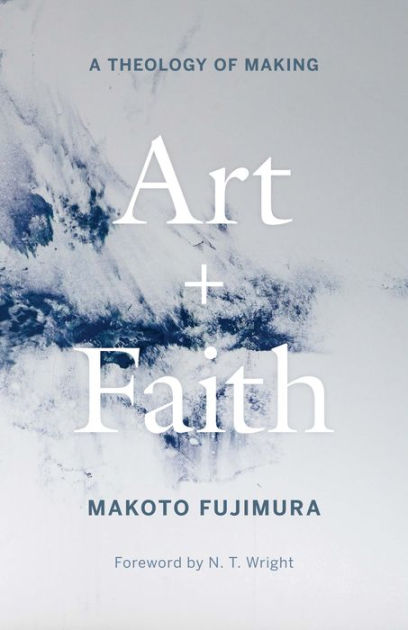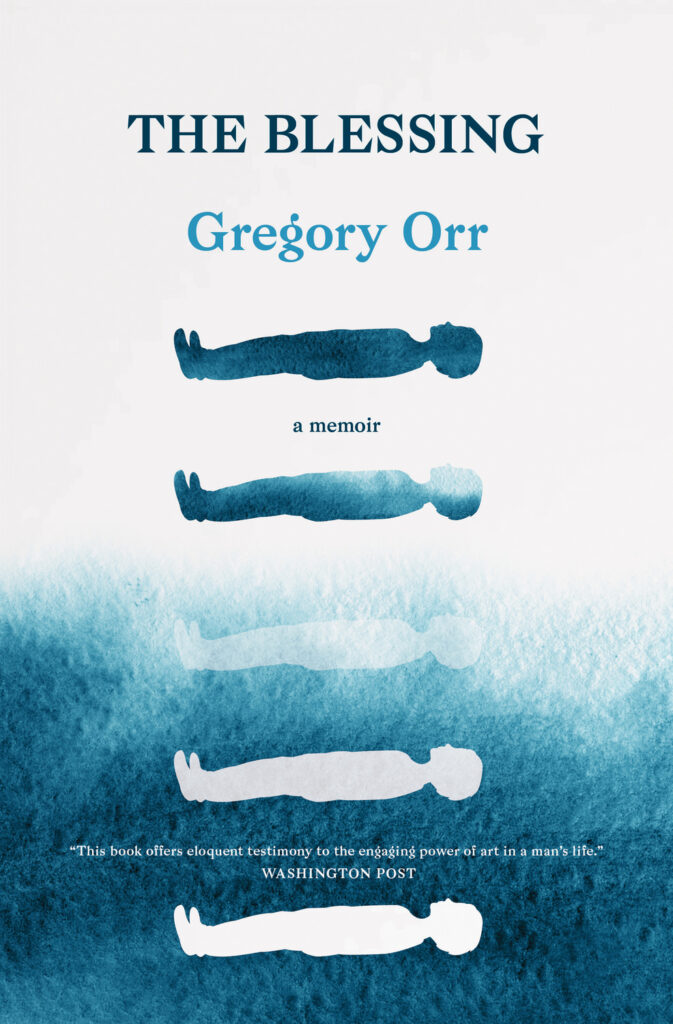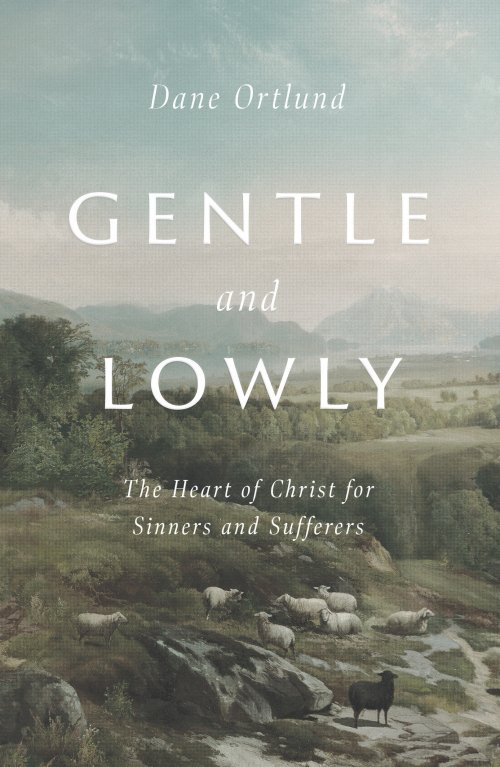I’m reading a lot in this new year but am way behind on my book reviews (but then I never review all the books I read. Here is one I finished in late December, one I finished in January, and a third finished in February:
Makota Fujimura, Art and Faith: A Theology of Making

(New Haven, Yale, 2021), 167 pages including index and notes.
In this book, Japanese-American artist Makota Fujimura provides an insight into his theology grounded in a belief in an all-sufficient God who created us to create. I find hope in the idea that God created us to create. His theology challenges the utilitarian views from the industrial revolution (and Darwin). While we often think of art as not being practical, he suggests that beauty and mercy (two components of art) draws us into the sacred and is necessary for the gospel to change the world. While beauty and mercy might not be in the hierarchy of the Old Creation, it invokes the New (28).
Fujimura critiques a common belief that God is there to “fix things”, labeling such an idea as “plumbing theology.” While he agrees that at time things need to be fixed, it’s not the whole message of the gospel. Fujimura’s theology is built around the idea that God is all sufficient, yet choses to delights in us. God calls us to participate in the creation of beauty. The essential questions, according to Fujimura, isn’t whether we are religious, but whether we are making something. He even encourages us in church to ask, “what did you make this week?” (62).
The author draws heavily on creative authors, poets, and theologians. He reminds us of Emily Dickinson’s referring to Jesus as the Tender Pioneer. A sample of others quoted include N. T. Wright, C. S. Lewis, Thomas Aquinas, Wendell Berry, philosopher Daniel N. Robinson, and William Blake. While he refers to Scripture frequently, he is especially fond of the Gospel of John and ends with detailed commentary on stories of Mary and Martha and their brother Lazarus. He also draws heavily on the image of the wedding between Christ and the Church, which should remind us that our future hope isn’t in “the end,” but in a new beginning (83-4).
Kintsugi, a form of Japanese art that repairs the pottery of a broken tea service to create a more valuable and beautiful piece serves as a metaphor for Fujimura. Christ doesn’t just “fix us,” but restores us to a new creation. As a part of the new creation, we are to be creating, regardless of what we do.
Often Fujimura slips in humor. Writing about refusing God’s gift, he reminds us that “we are not just rejecting a vacuum cleaner that is advertised as guaranteed to clean our hearts of sin; we are rejecting the Father love of God.” 69
I enjoyed reading this book. Fujimura gives the reader a lot to ponder and makes me now ask myself, “what did I make today?” That’s not a bad question for us to ask before nodding off to sleep.
###
Gregory Orr, The Blessing: A Memoir

(2002, Minneapolis: Milkweed Editions, 2019), 221 pages.
Last year I learned of Gregory Orr through his book on reading and writing poetry. I enjoyed it so, that I picked up one of his many books of poetry. Still intrigued, I checked out this memoir.
Orr tells the story of his first eighteen years through a series of short vignettes. The chapters tend to be short, some only a few hundred words. Through the telling of these stories, the author gradually reveals what drew him into art and especially poetry.
Reading the story of his young life, I found myself amazed that he survived. When the author was 12, he accidently shot and killed his younger brother in a hunting accident. We later learn (as he later learned), his father had also accidently killed a friend after they had “borrowed” a 22 rifle and was using it to “skeet shoot” paper plates. Obviously, such trauma continues to influence the author. But there were more bumps along the road. His father, a physician, supposedly to save the family, took them all to Haiti in the early 60s. There, he worked in a clinic where, following a simple surgery, his mother died of an infection. Afterwards, his father married a much younger woman to whom he had had an affair before moving to Haiti. His father, who seemed to be a devoted doctor who worked ungodly hours in rural New York, lived on amphetamines. He even gave an industrial size jar of such tablets to his son when he dropped him off at college. The memoir ends after Orr’s first year of college, when he headed South as part of the Freedom Riders who worked for Civil Rights. He was young and naïve and twice found himself in a dangerous situation which required his rescue by his father’s friend, an attorney.
It doesn’t appear Orr and his family were very religious. Orr recalls they occasionally attended a Dutch Reformed Church. However, this book is steeped in Biblical metaphors, especially around the accidental death of his brother. Orr sees himself as Cain, who after killing his brother Abel is protected by God. He too feels protected (even the investigating officer said it was an accident and doesn’t handcuff him). But he also feels guilty and unable to deal with the guilt. Later, as he writes this book, he learns of the guilt his brother had over the killing. His brother had not prepared for a test and prayed there would be a way he could avoid taking it. He, too, carried guilt, as he found the answer to his prayer (not having to take the test that day) to be horrific.
As a memoir, this book doesn’t contain everything about the author’s early life. While he mentions becoming involved with the Civil Rights movement, I found myself looking for a stronger link as to why he decided to spend a summer in Mississippi and Alabama. However, that doesn’t distract much from what I consider an excellent memoir.
This is a fast book to read. I started it one night and finished it the next afternoon. I do recommend this book and before I preach on Genesis 4 again (the story of Cain and Abel), I will reread much of this book.
###

Dane Ortlund, Gentle and Lowly: The Heart of Christ for Sinners and Sufferers
(Wheaton, IL: Crossways, 2020), 224 pages.
I picked up this book on the recommendation of a good friend. Ortlund acknowledges that we spend a lot of time discussing and talking about what Christ has done for us, which is important. However, his goal is to go another direction and explore the heart of Christ. Using selections of scripture and readings of Puritan authors (such as Thomas Goodman), Ortlund creates 23 short chapters that explore Christ’s heart. The emphasis is on the love of God, a love that can break through our sin and failures to welcome us into Gods’ family. This book isn’t about fearing the wrath of God (although the author does mention that side of the divine) but a comforting book about a God who will go the extra mile to reach out to us in love.
Not only does this book draws us into Scripture, but it also helps save Puritanism from the Perry Miller misunderstandings that has shed a dark cloud of the movement since the middle of the last century. Most people think of the Puritans as stern, people who seem overly worried that someone, somewhere is having fun. That’s not a fair representation and these chapters opens Puritanism to a new light.
This book would be an excellent read for a Bible Study group or each of the essays could be utilized as a short devotion.
###

Many thanks for sharing these books.
My good wishes.
All the best Jan
You’re welcome, Jan. Thanks for stopping by.
Minneapolis Milkweed Editions, I know them well, and this is always a treat to read your findings, sometimes I have read some of them. not always, but I’m one to always check out books, as well as movie clips, you just never know what is out there that we might miss. Your story-telling narrative always keeps my attention. Enjoy your week stay safe and take care.
Milkweed has published some interesting books. I’m curious as to your knowledge of them.
Once again you’re adding to my TBR stack. I’ve heard about Gentle and Lowly from several friends. By the way, I just started Jesus and John Wayne which you previously referenced.
I’ll look forward to your take on Jesus and John Wayne!
I’m intrigued by The Blessing. Irony is always such a riveting story device, and this memoir has that!
Thank you as always for introducing some interesting books.
While he had many trials in his early life, I found his telling of it to be captivating.
The art of taking our life experience and sharing it in words with others is no small feat!
All three of these sound interesting, but I’m most drawn to the first. I’ve added it to my wishlist.
I hope you will let us know what you think of Fujimura’s book.
I don’t really understand the reasoning of people who believe that art is not practical or important. Afterall, the first Artist was God Himself, who created this beautiful world in which we live and, in fact the entire universe. I believe He continues to create even today.
Good understanding. Fujimura’s point is that God calls us to also be artists, which I like. We all may have different talents, but we’re called into a creative life.
So much in this! I am intrigued by all of these books. “beauty and mercy (two components of art)”–never considered that. “God is there to “fix things””–there’s that whole ‘free will’ thing that kind of negates Him fixing our problems. At least, that’s what I think.
As usual, very thought-provoking, Jeff.
Fujimura is definitely the most “thought-provoking” of these three books, even though they all have caused me to think.